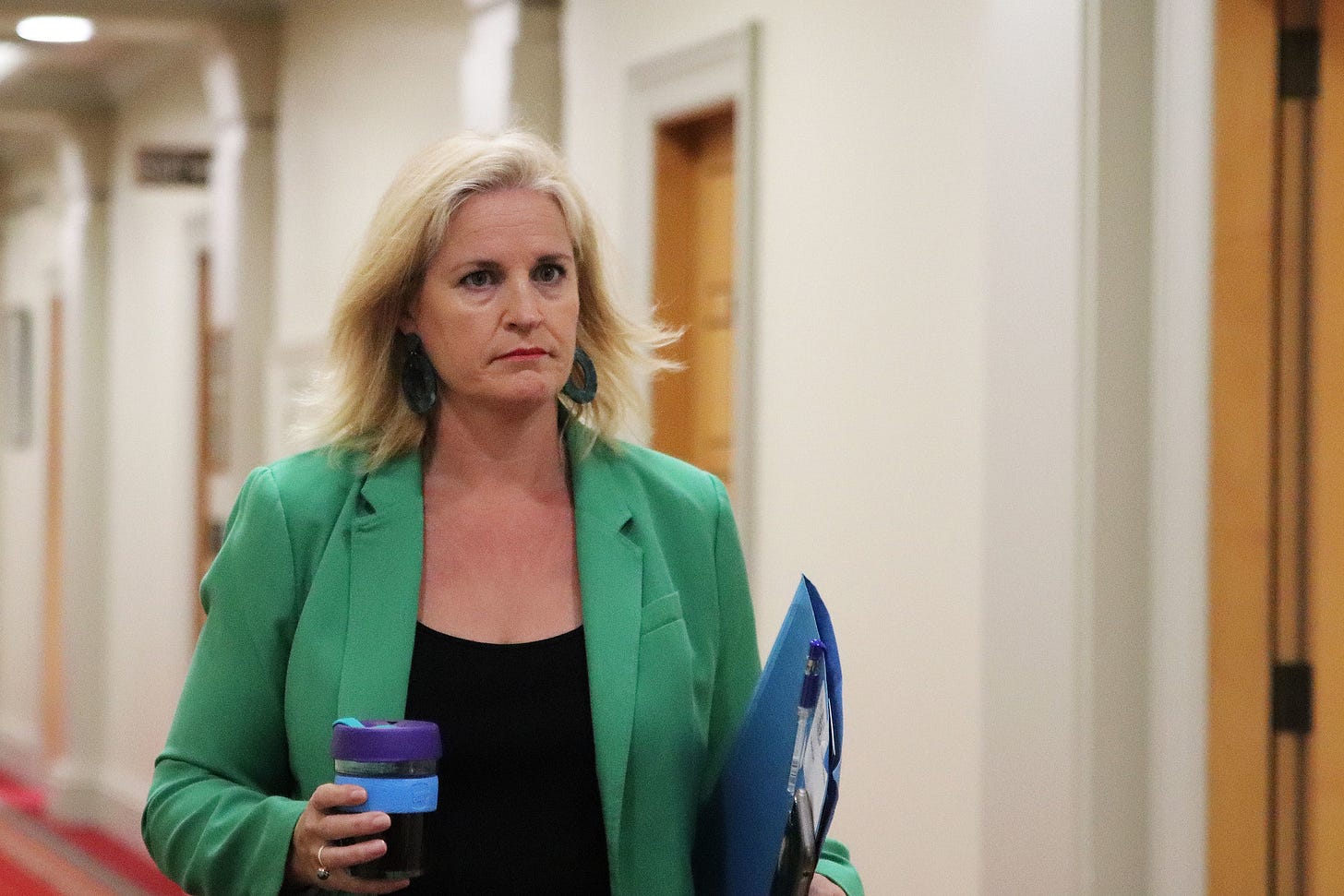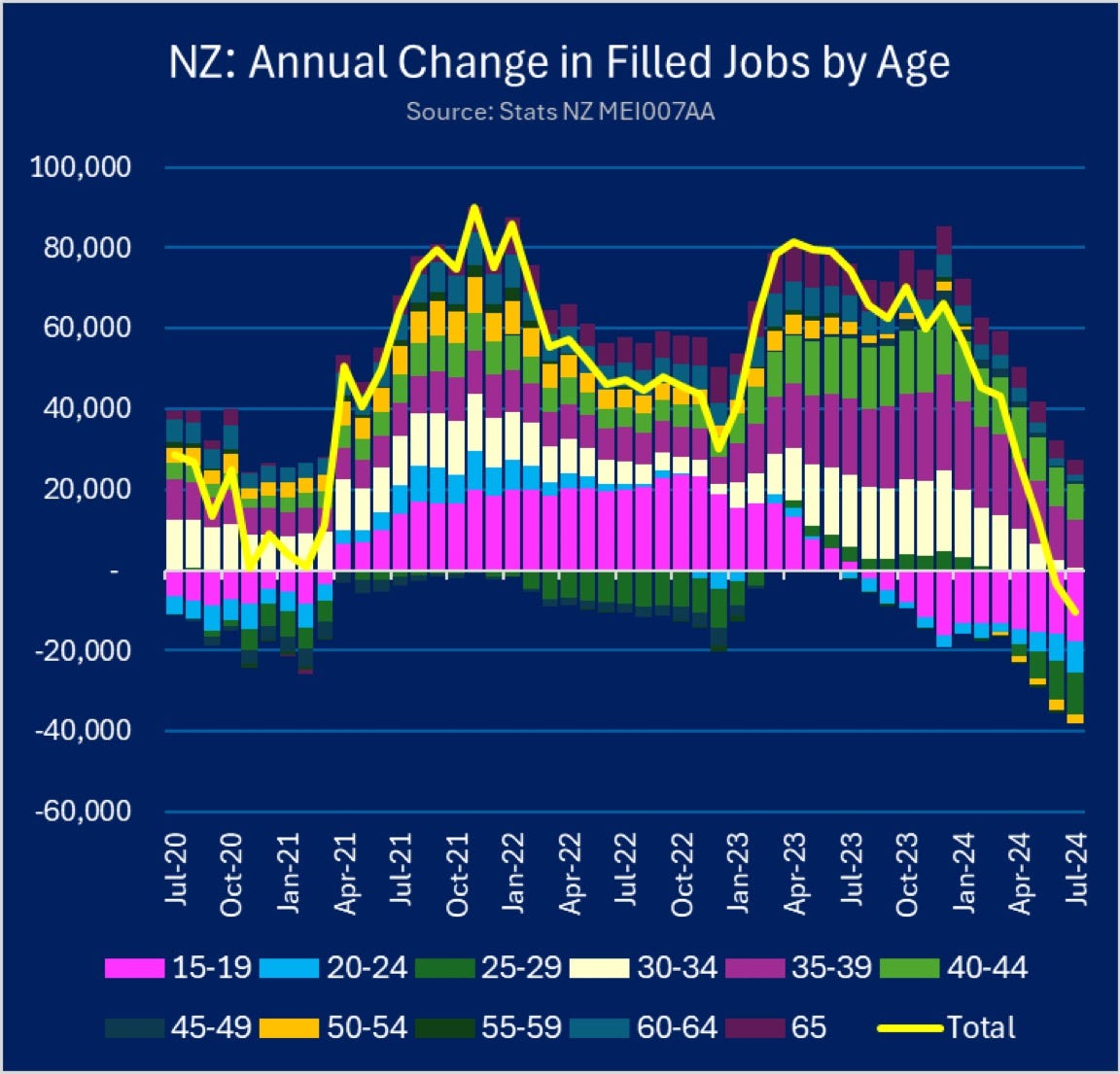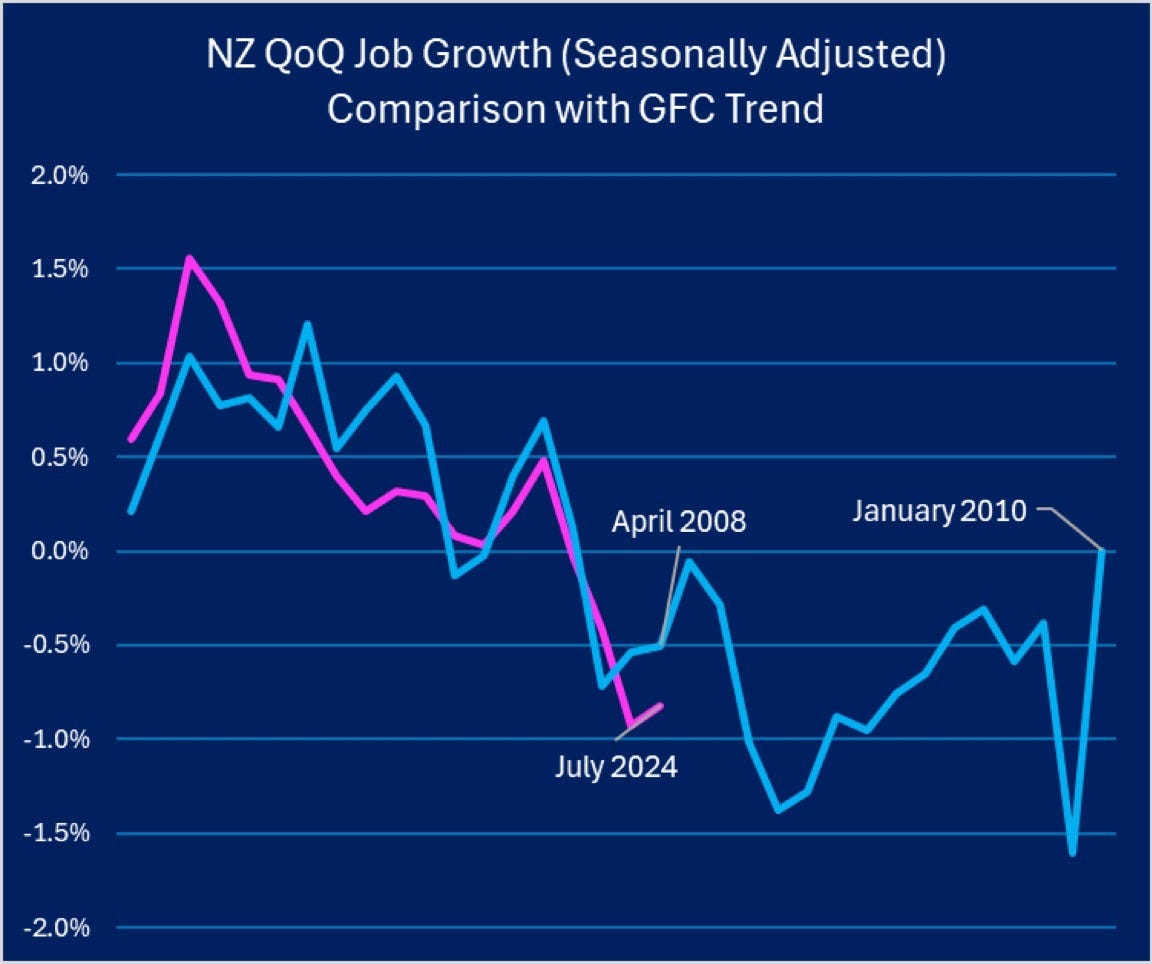
Mōrena. Long stories short; here’s my top six things to note in Aotearoa’s political economy around housing, climate and poverty on Thursday, August 29:
A quietly-administered and arbitrary freeze on funding ordered by Social Development Minister Louise Upston effectively means disabled people currently living with carers will only have a chance of getting into residential care if they’ve committed a crime, are leaving mental health care or hospital and have no appropriate place to go, or have escalating needs that can only be meet by hospital-level care.
A expert in Public Private Partnerships (PPPs) has estimated doing $50 billion of projects via PPPs would add $25 billion in interest costs to the Government because private borrowing is much more expensive the public borrowing.
In solutions news, a Rewiring Aoteroa report estimates electrification benefits at $10.7 billion per year by 2040 because locally generated electricity powering transport, farming, homes and industry is much cheaper than imported fossil fuels.
In the quote of the day, nursing advocates say a blanket redundancy offer to up to 20,000 hospital admin, IT and support staff risks destabilising the health system and appears to be setting it up for privatisation..
Our Chart of the day shows how young people are being hurt first and most by a jobs recession that is on track to be as bad as during the Global Financial Crisis.
Our Climate graphic of the day shows the scale of the opportunity for Aotearoa to import an entire fleet-load of EVs from China’s factories, which are now able to export millions, but face huge tariff increases from Europe, the US and Canada.
(There is more detail below the paywall fold and in the podcast above for paying subscribers.)
The Top Six on Thursday, August 29
1. ‘You have to commit a crime or be insane to get in now’
Upston says she’s ‘ripping the scab’ off funding mess
Whaikaha, the Ministry of Disabled People, has quietly told parents and carers of severely disabled people living with them that there will be no more places in residential care in the current financial year. The abrupt funding halt means the only hope disabled people currently living with carers have of being considered for residential care is to commit a crime or be so mentally or physically unwell they have been hospitalised and can no longer be cared for at home, or are facing completely-out-on-the-street homelessness.
Carers and advocates are shocked at the completely arbitrary and mean approach being taken by Social Development Minister Louise Upston as she rips services out of Whaikaha and drumps them in MSD. The block on net extra places in residential care was never formally spelled out by the minister in a release, but is clear in a fact sheet buried in the Whaikaha website.
Here’s the words in a section titled: Freeze Funding for Residential Care (bolding mine):
“This recommendation will maintain current levels of funding for residential facility-based care for 2024/25 pending commissioning and completion of a detailed and urgent review of the contract and pricing models.
“While the number of people in residential care has been relatively constant for several years, the cost of delivering the service has increased by 29% between 2015/16 and 2022/231.
This financial year, current levels of funding will be frozen.
“This means that the rates providers are currently paid for people in their care are the rates they will continue to be paid for the remainder of the 2024/25 financial year (until 30 June 2025). The current bands and rates for residential care pricing remain the same.
“Where a person’s support needs have changed, the NASC may agree to an increase in the rate paid for that person. They will need to manage this within their residential care budget.
“We anticipate this change will mean that the overall number of people in residential care will not increase in the 2024/25 financial year. Whaikaha fact sheet.
Dr Rebekah Graham from Parents of Vision Impaired NZ wrote about the changes on her Dr Bex’s Substack on Tuesday (bolding mine):
“The restrictions are so severe that there is significant risk of harm to disabled people and their families, particularly for aging parents who are finding care work increasingly difficult.
“Disabled people will now have to compete for residential care, with priority being given to disabled people in court ordered care (forensics – those who have committed a crime), those in the care of Oranga Tamariki (often severe, with no family support), those exiting Mental Health care (including secure care), those needing to exit hospital care and have nowhere to go, and people whose health is deteriorating and need hospital-level care (usually aged care).” Dr Rebekah Graham via her substack
She gave an update on the situation after an online meeting between carers, advocates and Upston last night.
“She was pretty short with disability community representatives/stakeholders at on online meeting last night, stating that she was 'cleaning up the mess' and "ripping off the scab to deal with the mess underneath", and "there are areas of waste at the moment". She also said that she "objects to disabled people being used as bullets towards me". The Minister was absolutely certain that she was doing the best thing by disabled people, had the support of disabled people, and that any disagreement was purely politically motivated.” Dr Rebekah Graham
2. PPPs cost 50c extra in interest for every $1 spent building
Expert tells conference $50b of PPPs would cost $25b extra in interest
One of the core problems with PPPs, which are the centrepiece of Chris Bishop’s Infrastructure Strategy announcements yesterday, is they use higher interest rate debt than Crown debt. These comments from KPMG Partner Karen Mitchell at yesterday’s Building Nations summit in Auckland make that clear, as reported this morning by BusinessDesk-$$$’s Oliver Lewis.
‘Using a hypothetical example, Mitchell said if New Zealand delivered $50 billion of infrastructure using public-private partnerships (PPP), the Government would incur $125b of debt repayments over 25 years.
‘Referring to the lower Crown borrowing costs, she said: “The difference between that private sector and public sector borrowing means that we have to extract $25b of value out of those projects essentially.”
(The $25b is the hypothetical difference in repayment costs over the period).
“You really are looking for the projects where you can extract value and essentially close the gap between the cost of private capital and the cost of public sector borrowing,” Mitchell said.
‘Under the PPP model – which has been used to varying degrees of success in NZ, including for the Transmission Gully and Pūhoi to Warkworth motorways – the private sector partner designs, finances, builds and manages a public asset for a contracted period of time; the Government makes ongoing availability payments and the asset returns to public control at the end of the contract period.’
“You need to be able to understand what the PPPs do when they hit your operating expenditure and what that means for your capacity to do other things. I think there’s possibly a limit from an operating perspective to how many PPPs you can actually stack up.
“There is definitely a limit to the number.” Karen Mitchell via BusinessDesk-$$$’s Oliver Lewis.
3. Solutions news: $10.7b/yr of benefits for the taking
Rewiring Aotearoa has published a report titled: Investing in Tomorrow: the electrification opportunity, which estimates the benefits of a rapid electrification of Aotearoa’s economy with renewable power at $10.7 billion per year by 2040, simply because costs of solar, wind and batteries have collapsed in recent years to be much cheaper than fossil-fuel-generated power.
4. Quotes of the day
‘A rash, reckless, unhinged, unplanned & unfocused slashing & burning’
“We’re already hearing horrifying stories of 72-hour wait times and worse for mental health care. Gouging at the foundations of an already stretched-to-breaking system will mean people won’t get the care they need.” Public Service Association Te Pūkenga Here Tikanga Mahi National Secretary Kerry Davies said.
5. Charts of the day
The young hit hardest and first

On track to repeat the GFC for jobs growth

6. Climate graphic/chart/pic of the day
A huge opportunity for Aotearoa

The best of the rest
Top Six scoops and deep dives for Thursday, August 29
Housing deep dive: Offsite building industry struggling to stay afloat BusinessDesk-$$$’s Cecile Meier
Health scoop: Woman says she waited 16 hours at hospital ED RNZ’s Natalie Akoorie
Health deep dive: Cost of living taking toll on health RNZ’s Checkpoint
Climate scoop: Meridian pushes pause on Southern Green Hydrogen Stuff’s Louisa Steyl
Housing deep dive: New rules 'tighten the gateway' into emergency housing, including homeless having to prove they didn’t cause their own homelessness
RNZ’s Lauren Crimp
Health cuts: Gisborne GPs overwhelmed: Only telehealth available after hours NZ Herald
The Kākā’s journal of record for Thursday, August 29
Climate: The Electricity Authority (EA) and the Commerce Commission announced the creation of a taskforce to find solutions for high electricity prices, including helping new generators to enter the market and requiring gentailers to contract more with independent retailers. RNZ, BusinessDesk
Poverty: People living in areas with the lowest median incomes pay the highest electricity prices, according to an MBIE survey of domestic prices. Powerswitch manager Paul Fruge said about 40% of a typical power bill covers infrastructure costs, leading to higher prices for regions further away from power sources and with lower population densities. RNZ.
Infrastructure Minister Chris Bishop announced yesterday a new 30-year National Infrastructure Plan being developed would be informed by Australia’s Infrastructure Priority List and released in December 2025. Bishop also announced a new National Infrastructure Agency, intended to foster private infrastructure investment, would be established in December this year. RNZ
The New Zealand Infrastructure Commission-Te Waihanga launched the Infrastructure Priorities Programme to identify pressing infrastructure issues and possible solutions. The commission called for councils and the private sector to propose potential projects to be assessed by the Programme, and that successful proposals would be included in the National Infrastructure Plan.
Economy: Stats NZ reported that filled jobs fell 0.1% in July and fell 3.1% for 15-24 year olds. In the year to July, the largest decrease was in admin and support service jobs, down 12.7%, followed by construction and hospitality.
Health: Te Whatu Ora announced it had offered redundancy to admin and IT workers to save money. Labour said the offer made to up to 20,000 non-clinical staff was being forced by arbitrary cuts of $1.4 billion to Te Whatu Ora’s budget, alongside a hiring pause on doctors and nurses. The NZ Nurses Organisation said the offer breached collective contracts, would destabilise public health and was a prelude to privatisation.
Finally, some fun things
Cartoon of the day
Timeline-cleansing nature pic
‘Spring is springing all over the show’
Ka kite ano
Bernard
That 29% increase compares with CPI inflation of 26% and nominal wage inflation for residential carers of 29% over that period, which means the number simply reflects hourly wage inflation for exactly the same number of staff.











